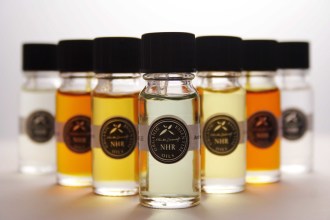Anxiety is characterised by feelings of worry, fatigue, irritability, tension, mood changes, sleep disturbances and difficulty concentrating. While certain treatments like medication and psychotherapy can improve symptoms, making a few simple lifestyle and dietary adjustments and natural supplements can also provide benefits.
The first step is to go to you GP: He or she will be able to help you find the right type of help. This may include medication, or a referral to a clinical psychologist. Cognitive behaviour therapy has had the highest success rate. Eighty per cent of sufferers use it to cope with their illnesses.
Never skip breakfast: People get more anxious and irritable when they are hungry. If you have long spaces between meals and suffer anxiety attack, it may be a result of your blood sugar levels dropping. Many people with anxiety disorders skip breakfast. I recommend that people eat a savoury, protein rich breakfast. Eggs are great because they are rich in protein so satisfy and fill you up and nature’s top source of choline. Low levels of choline are associated with increased anxiety.
Eat regularly: Skipping and delaying meals can interfere with your moods, energy levels and blood sugar levels leading to anxiety. Keep your blood sugar levels stable by eating frequent balanced snacks such as fruit and yogurt or peanut butter on whole grain bread.
Don’t cut too many carbohydrates: Many of us are still trying to lose the extra pounds we gained at Christmas and the temptation is to reduce carbohydrates to speed up weight loss. However, carbohydrates don’t just supply energy to your body and brain, carbohydrates increase the amount of serotonin, a chemical that promotes calmness, in your brain. By all means cut out processed carbohydrates, but make sure you swap them with complex sources, such as whole grains, vegetables and fruits for nutrients and blood sugar control.
Foods to increase: Although a specific anti-anxiety diet does not exist, your diet should promote positive blood sugar levels and brain function, both of which can influence your moods. The amino acid called tryptophan, which is prevalent in dairy products, soy, fish, meats, nuts and seeds, helps your brain use serotonin properly. Eat a whole-foods, plant-based diet with good quality meat and seafood, plenty of leafy greens (such as kale) for folate as well as foods high in omega-3 fatty acids. Experts generally recommend getting omega-3s from food whenever possible. Oily, cold-water fishes like salmon are the best sources of the fatty acids; a six-ounce piece of grilled wild salmon contains about 3.75 grams. Other good choices: halibut, herring, flax seeds and walnuts anchovies, sardines, and mussels.
Even modest dehydration can contribute to anxiety: So drink water throughout each day, there’s no recommended amount of, just drink enough so that your urine runs light yellow to clear and your lips are not dry. Additional hydrating options include, broth-based soups, herbal tea, and fresh fruits and vegetables.
Foods to reduce: Consuming stimulants such as caffeine from coffee and fizzy drinks, can cause or worsen anxiety and although alcohol may seem calming initially, as your body processes it, it can make you feel edgy. For improved blood sugar control, limit refined foods, such as white bread, sweets, fizzy drinks and low-fibre cereals e.g. puffed rice. Avoid eating refined foods when you can, but if you must, anchor them with protein or fats to reduce the chance of blood sugar imbalances. Eating biscuits on their own, for example, is more likely to offset your blood sugar than having biscuits with a glass of milk.
Exercise: Is good for the brain and a powerful antidote to anxiety and depression, both immediately and in the long term. Exercise for 30 minutes 5 times a week to feel the benefits.
Magnesium Supplements: 200 mg to 300 mg three times a day magnesium supplementation might help with mild anxiety, however, if you have heart disease or kidney disease, do not take magnesium supplements without consulting with your doctor first. If you are pregnant or nursing, your magnesium intake should not exceed 350 mg, which is the safe upper limit so supplementation for anxiety is probably not the best option. It’s also important to get enough B-6 either through diet or supplementation as inadequate levels will decrease magnesium absorption. Magnesium might inhibit absorption of several classes of antibiotics — take these supplements one hour before or two hours after the medications. Supplementing with larger amounts of magnesium can create a calcium deficiency if you already have insufficient levels so may want to consider getting your calcium levels checked by a nutritional therapist before using them.
L-Glutamine: Is a naturally occurring form of the amino acid glutamine. It is the precursor to another amino acid known as GABA, or gamma-aminobutyric acid. GABA is the primary inhibitory neurotransmitter in your brain – it has a calming effect on your nervous system and helps decrease the number of anxiety-related messages in your brain by inhibiting neuron firing. Because glutamine increases GABA production, it is thought that glutamine can also help to decrease symptoms of anxiety. Glutamine is found in foods such as beef, chicken, eggs, cabbage, beetroot and spinach.
All B-Vitamins: B12 is the most common, but all B vitamins may have an effect on anxiety. B-vitamins play a strong role in the nervous system, so supplementing B vitamins could also improve anxiety.
5-HTP: 5-HTP has been a popular amino acid supplement for both anxiety and depression, because it works in the brain and central nervous system by increasing the production of the chemicals serotonin and melatonin. Serotonin can affect sleep, appetite, temperature, sexual behaviour, and pain sensation. A word of warning, 5HTP should never be taken with anti-depressant medication such as fluoxetine (Prozac), paroxetine (Paxil), sertraline (Zoloft), amitriptyline (Elavil), clomipramine (Anafranil), imipramine (Tofranil) and others as it can increase serotonin too much and cause serious side effects including heart problems, shivering, and anxiety.
Chamomile: Chamomile tea can help calm you down as it contains compounds in which bind to the same brain receptors as drugs like Valium. You can also take it as a supplement, typically standardised to contain 1.2% apigenin (an active ingredient). In one study at the University of Pennsylvania Medical Center, patients with generalised anxiety disorder who took chamomile supplements for eight weeks had a significant decrease in anxiety symptoms compared to patients taking placebo.
L-theanine (or green tea): Green Tea contains an amino acid called L-theanine which helps lower a rising heart rate and blood pressure. A few small human studies have found that it reduces anxiety. In one study, anxiety-prone subjects were calmer and more focused during a test if they took 200 milligrams of L-theanine beforehand. To get 200 milligrams of L-theanine from green tea you’ll have to drink between five and 20 cups, depending on the strength.
Valerian: While L-theanine reduces anxiety without making you sleepy Valerian is a sedative and is used as a sleep aid. As it smells bad, most people take it as a capsule or tincture, rather than a tea. If you want to try it, take it in the evening, not before you go to work. Valerian is often combined with other sedative herbs such as hops, chamomile, and lemon balm.
Other medical options: Drug treatments can be used to provide short-term help, but are most useful when combined with other treatments or support. Benzodiazepines may provide short-term relief for severe anxiety problems, but most GPs do not prescribe them for minor anxiety because they are addictive. Beta blockers slow down the activity of the heart. They are prescribed to control fast or irregular heartbeat, and other bodily symptoms of anxiety. They may be useful in the short-term treatment of ‘stage fright’, and the relief of panic symptoms.

Shani Shaker BA (hons), dipION, mBANT, CNHC, is a registered nutritional therapist with a focus on regenerative and functional nutrition, disordered eating, addiction and mental health. Based in London her services include one-to-one coaching, group classes and Skype sessions. Contact her at [email protected]
Disclaimer: The information provided is intended for your general knowledge only and is not a substitute for professional medical advice or treatment for specific medical conditions. Please consult your healthcare provider with any questions or concerns you may have regarding your condition. Supplementation should only be temporary. If you’re eating a nutrient-rich diet, extra supplementation should only last for a month or two, just long enough to resolve the deficiency.




